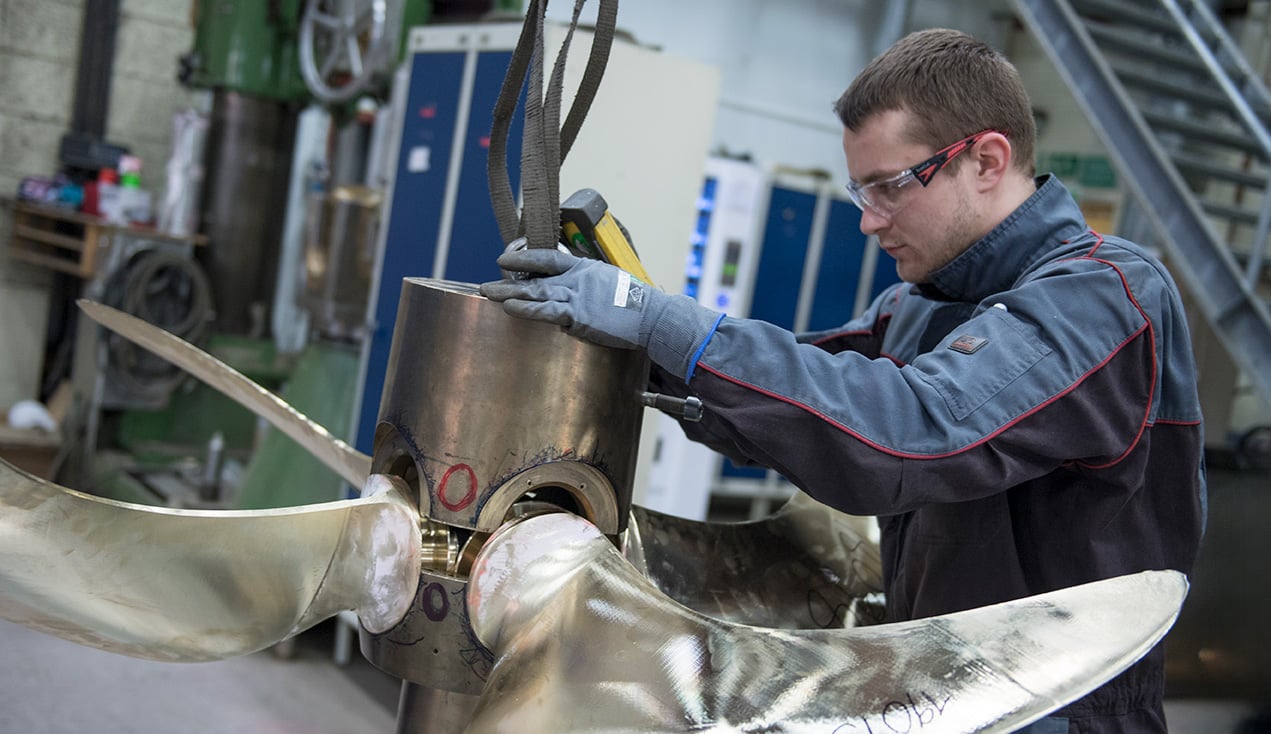The benefits of a considered part inventory
Looking for how to better plan and prepare for your asset's inevitable downtime? In the maritime industry, where the health of your assets directly...
Servogear AS
main.office@servogear.no
+47 53 42 39 50
+47 40 40 13 85
Brubakken 73
5420 Rubbestadneset
Norway
2 min read
 Bjørn Sturle Hillestad
:
Feb 9, 2023 8:30:00 AM
Bjørn Sturle Hillestad
:
Feb 9, 2023 8:30:00 AM

In today’s marked there is a collective strive towards zero emissions. It is therefore not surprising that many are exploring how to build vessels, or optimize existing vessels, so they run on green energy sources.
However, investing in systems that use green energy such as batteries, is not the only option when creating a more sustainable vessel. What often gets overlooked is the importance of optimizing the energy-consumption.
In this article, we will dive deeper into this topic and look at ways you can achieve a greener operation, regardless of the energy source used.
Imagine you live in a house that is costly to heat. I think we would all agree that it is wise to improve your insulation and seal air leaks, before investing in a new heater. Having the same approach when aiming to make your vessel more sustainable is key.
Choosing a renewable energy source is a great step towards accomplishing a greener vessel. However, if your energy consumption is not optimal, you are spending more energy than needed. Think about what you could use this energy for instead?
The cheapest and fastest way to reduce your carbon footprint, is to improve energy efficiency.
Energy efficiency is all about using less energy to perform the same task. In other words, it is about eliminating energy waste. Through doing so, you are able to reduce both emissions and costs.
There are huge opportunities for efficiency improvements on most vessels, regardless of energy source. As such, if more vessels chose to focus on optimizing this area, there would be a substantial reduction in the overall demand of energy imports.
Read more: Why Twist Your Rudder
In this section, we will share ways you can optimize your energy-consumption. However, it is important to state that lowering the use of energy, should never come at the expense of safety and purpose of the vessel.
3 areas to consider for better energy-efficiency:
Read more: Efficient Propulsion in a Green Environment, What are the Options?
Energy is a scarce resource, thus it’s important to ensure we make smart choices to reduce consumption. We therefore recommend that you optimize your vessel’s energy-efficiency before you resort to another energy source. Using energy more efficiently is the most immediate and cost-effective way to reduce greenhouse gas emissions and tackle the growing energy demand.

Looking for how to better plan and prepare for your asset's inevitable downtime? In the maritime industry, where the health of your assets directly...

In recent years, there has been a global movement towards zero-emission solutions. The maritime industry is no exception. We can only commend...

Are you unsure of what technology to aim for in a changing maritime market? Looking to get the most out of your investment and vessel when choosing a...